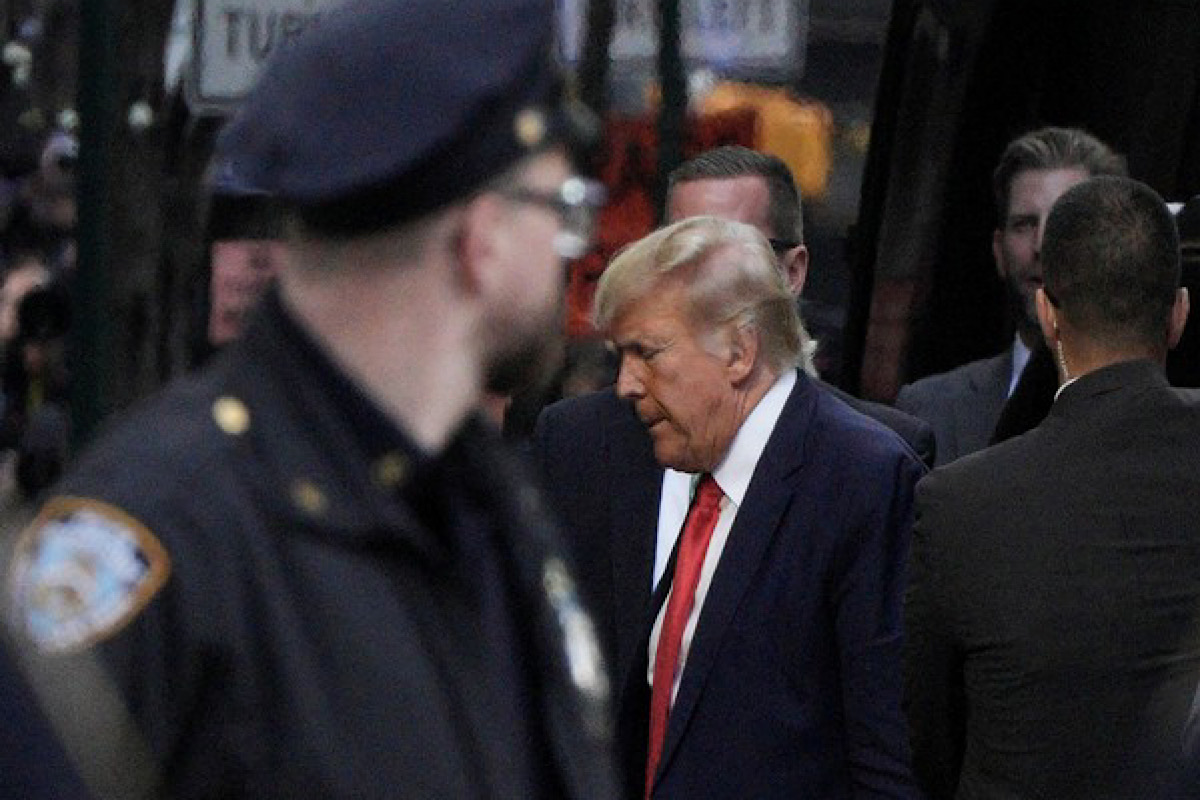Immigration has again emerged as a central factor in American politics, holding the potential to sway electoral outcomes. The narrative surrounding the issue has echoes from the past, reminiscent of how former President Donald Trump rode the “border chaos” wave to secure the Republican nomination and subsequently the presidency in 2016. Today, the country’s southern border is once again a focal point, with nearly 250,000 attempts to cross in November alone. It’s a stark contrast to the rhetoric of yesteryears, where Mr Trump campaigned on the perception of a crisis that wasn’t as severe then as it is now.
The surge in border crossings, exacerbated by the asylum-seeking process and the release of individuals into America, poses a significant challenge for President Joe Biden. Since taking office, over 3.1 million border-crossers have been admitted, a number surpassing the population of Chicago. Add to that the undisclosed number of those who have entered undetected or overstayed their visas, and the issue gains political weight. The Democrats find themselves at a crossroads, grappling with the consequences of a more lenient stance on immigration. The public’s trust, particularly on border security, leans toward Republicans by a margin of 30 points, making it the party’s strongest suit in voters’ eyes. Yet, this isn’t solely a problem for Mr Biden.

Economic factors, such as a tight labour market, have historically influenced the ebb and flow of illegal immigration, a challenge faced by previous administrations. However, the blame game only goes so far. While Mr Biden inherited a complex situation, his initial reversal of some Trump-era policies, like discontinuing the border wall and ditching the remain-in-Mexico policy, predictably led to an uptick in illegal immigration. The President has quietly adjusted course since the mid-term elections in 2022, filling gaps in the wall and making changes to the asylum-seeking process. Yet, these efforts remain largely unknown to the public, as Mr Biden hesitates to highlight what might be perceived as a political U-turn.
In this delicate balancing act, Mr Biden faces challenges from both sides of the aisle. The House of Representatives has bundled a stringent immigration bill with funding for Ukraine’s war, a move met with resentment from the administration. However, this could be a unique opportunity for Mr Biden to navigate the complex landscape. Instead of viewing it as an imposition, he could seize the chance for bipartisan collaboration. The immigration debate is nuanced, with sensible demands from both Republicans and Democrats.
Raising the threshold for credible fear and addressing the backlog of immigration cases are reasonable aspirations. As the political pendulum swings, Mr Biden’s challenge is clear ~ to address immigration comprehensively, defying partisan divides. By doing so, not only would Mr Biden embrace what is morally right, but also position himself favourably in the eyes of the electorate, mitigating the risk of immigration becoming the Achilles’ heel that costs him the presidency.












